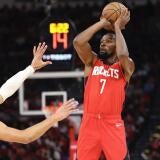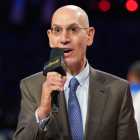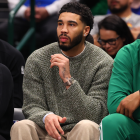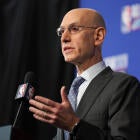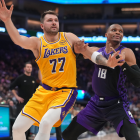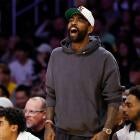LaMarcus Aldridge retires as one of his generation's unluckiest and most underappreciated NBA superstars
The stars never fully aligned for Aldridge in 16 NBA seasons
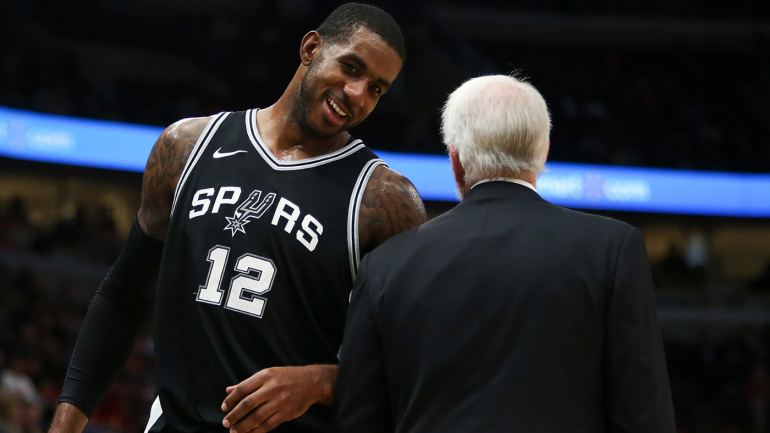
An undercurrent of disrespect permeated LaMarcus Aldridge's 2015 free agency. For a week that July, he was the center of the NBA universe, the lone championship-altering force on a market accustomed to players just a hair greater. Aldridge was never LeBron James or Kevin Durant, but for that one week, he was treated like it, and it was a feeling he seemingly wanted to replicate in perpetuity. Despite winning 105 games in his last two seasons in Portland, reports indicated that his desire to compete for championships was matched or perhaps exceeded by his longing for validation. Adrian Wojnarowski even reported at the time that Aldridge "loathed" driving around Portland and seeing the many billboards Adidas had posted featuring teammate Damian Lillard. Free agency was an opportunity to win, but more importantly, it was an opportunity to do so on his own terms.
It's something Aldridge -- who announced his retirement for the second time on Friday -- never really got to do in 16 NBA seasons. He started his career as the third wheel to a preordained Brandon Roy-Greg Oden dynasty, and by the time injuries ruined it, Lillard's ascent rendered him a sidekick on the only team he'd ever known. The egalitarian theory of the Spurs offered an alternative that Kawhi Leonard's brilliance swallowed in practice. Aldridge asked for a trade after his second season in San Antonio and rescinded it only after Leonard's injury granted him the spotlight he so craved but never quite deserved. The Aldridge-led Spurs were good. They made the playoffs. But without a Leonard-caliber leading man, Aldridge was never going to win a championship.
It makes his career an interesting case study in compromise. Sidekicking is notoriously tedious. Stars routinely grumble about the sacrifices it takes to win alongside superior teammates, but Aldridge never got the chance. He reached the conference finals only once, and by the time he was willing to sacrifice enough of the trappings of stardom to reach the absolute highest levels of winning, it was too late. Aldridge played only five games on the contending 2020-21 Nets before a heart condition ended his season. He played 47 more games for the Nets in 2021-22, but the team fell way short of expectations. It was the least satisfying possible outcome for Aldridge's career: he never held the keys to a franchise as Lillard does now, nor did he have the chance to ride shotgun on the way to someone else's championship.
It was ultimately a case of poor luck on both fronts, and it dates back to the very beginning of his career. The Toronto Raptors held the No. 1 overall pick in the 2006 NBA Draft, and despite the pleas of fellow Texan Chris Bosh, opted for Andrea Bargnani as their top choice. That robbed Aldridge of an ideal long-term frontcourt partner, a modern mismatch machine of a duo that would have drawn opposing bigs out of the paint a full decade before they were ready to. One pick later, the Chicago Bulls drafted him at No. 2, and for a moment, the chance to serve as Michael Jordan's long-awaited successor could have made Aldridge one of the league's brightest young stars. That pick's original owner offered similar marketability. Had they not traded for Eddy Curry, Aldridge may well have begun his career as the face of the New York Knicks.
But big market fame eluded him after a trade to Portland that should have earned him some jewelry. Injuries to Oden and Roy and then Leonard in San Antonio only scratch the surface of why it didn't. The 2013-14 Blazers started the season 31-9 before injuries to Aldridge cost them a possible 60-win season. A year later, Portland trailed only the nascent Warriors in the Western Conference standings when Wes Matthews tore his Achilles and knocked the Blazers out of championship contention. Neither was Aldridge's best team, though. That honor belongs to the historically overlooked 2016 Spurs.
Fun fact: the 73-win Warriors of 2016 didn't have the NBA's best point differential. San Antonio's plus-11.1 net rating outpaced Golden State's plus-10.6. The Spurs had the NBA's No. 4-ranked offense and best overall defense, but ran into a Durant-shaped buzzsaw in the second round of the postseason. Durant's Warriors knocked Aldridge and the Spurs out of the postseason again a year later when Leonard landed on Zaza Pachulia's foot in what would have been a Game 1 rout. Just like that, Aldridge's title hopes were dashed. His loss, ironically, was the gain of one of his draftmates. Kyle Lowry also had a brief window to contend with Leonard, but when that very Raptors team that didn't draft Aldridge ran into Durant in 2019, the player that deprived Aldridge of his title was injured.
Lowry will forever be remembered as a champion based on that run, and justifiably so, but he benefited from circumstances that deprived Aldridge of the same privilege. By most traditional measures of individual success—points, All-Star appearances, All-NBA nods, career earnings—his career was superior. It won't be remembered quite as fondly without that feather in his cap. It's no wonder Aldridge was so image-conscious in 2015. Portland couldn't give him a championship, but it couldn't give him what it gave Lillard, either.
It makes legislating his legacy a somewhat complicated affair. Aldridge fits in no defined box and his career has no identifiable arc. He was a constant, never changing a mid-range shooting style that carried him from evolutionary to anachronism across a changing league. For over a decade, he flirted with the traditional benchmark of big man stardom—the coveted "20 and 10" status symbol that has long since gone out of fashion—yet between 2008 and 2018, his scoring never deviated by more than six points per game. He just kept chugging along, putting up All-Star caliber numbers on teams only locals and league pass junkies ever watched.
It irked Aldridge enough to take matters into his own hands. He asked for trades in 2013 and 2017 and used free agency to change teams in 2015, always looking for something slightly different. Perhaps sensing the end was near, he used a recent buyout to take one last swing at the championship that eluded him. But in the grand scheme of his career, it seems appropriate that he won't end up winning one. Not because he isn't deserving, but because without one, the discourse will have to meet him on his terms. Remembering LaMarcus Aldridge means reckoning with an often unsatisfying career, but an enormously successful one regardless.
Those unkind circumstances can enforce a somewhat more honest conversation about who Aldridge was as a player. There is no easy narrative, no legendary team, or mind-boggling statistic to condense his contributions into. He won't be on billboards now that his career is over. He was just a great player whose talent was narrowly beaten out by his poor luck. That luck robbed him of the attention his talent warranted during his career. With some distance, it's praise he more than deserves in retirement.





